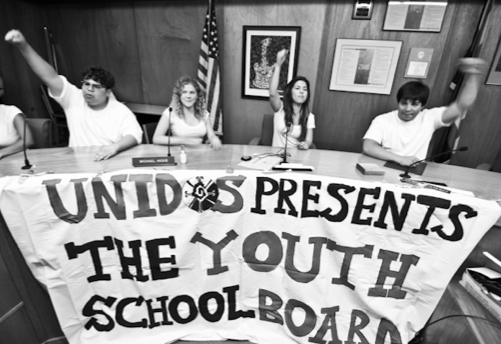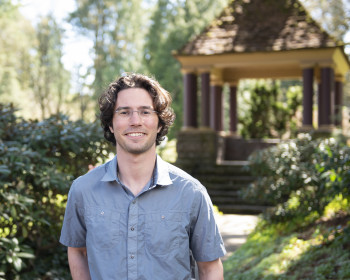Tucson alternative spring break: Ethnic studies in Arizona
Open gallery

by Anna Dagget BA ’14
I dreamt up the idea for the Tucson Alternative Spring Break program when I was studying in Tucson with the border studies program, a semester focused on learning about the history, culture, and politics of the U.S.–Mexico border.
During my time there, I became immersed in ideas of education and captivated by the pedagogy of the Mexican-American studies program, a grassroots effort started by teachers in the 1990s to address equity issues within the school system. This program was banned in 2010 for providing, in the words of the Arizona state legislature, “instruction of any courses or classes … that promote resentment toward a race or class of people[,] … are designed primarily for pupils of a particular ethnic group[,] … [or] advocate ethnic solidarity instead of the treatment of pupils as individuals.” The rhetoric used by the Arizona state legislature echoes attacks on many other multicultural and bilingual education programs that have been criticized for promoting group solidarity and ethnic separatism.
In 2014, 12 Lewis & Clark students, and Associate Professor of History Elliott Young, will be traveling to Tucson for spring break to explore the ethnic studies ban and the current fight for educational equity in Tucson. We will be visiting and volunteering in innovative schools and collaborating with Tucson school board members and professors from the Mexican-American studies program to host a panel open to the community regarding this issue. We will also be visiting Nogales, Arizona on the border and discussing the criminalization of undocumented people and of Latina youth.
Gloria Anzalúa wrote in her book Borderlands/La Frontera, “The U.S.-Mexico border es una herida abierta [is an open wound] where the Third World grates against the First and bleeds. It’s not a comfortable place to live in, this place of contradictions.”
The borderlands force us to come to grips with the inconsistencies in our political system. I hope that experiencing the borderlands firsthand will be a source of fuel for participants to fight the injustices occurring there and to spread the fight elsewhere, where the inconsistencies may not be so visible.
A version of this article originally appeared in Footnotes, the history department newsletter.
More Newsroom Stories
Public Relations is located in McAfee on the Undergraduate Campus.
MSC: 19
email public@lclark.edu
voice 503-768-7970
Public Relations
Lewis & Clark
615 S. Palatine Hill Road MSC 19
Portland OR 97219

